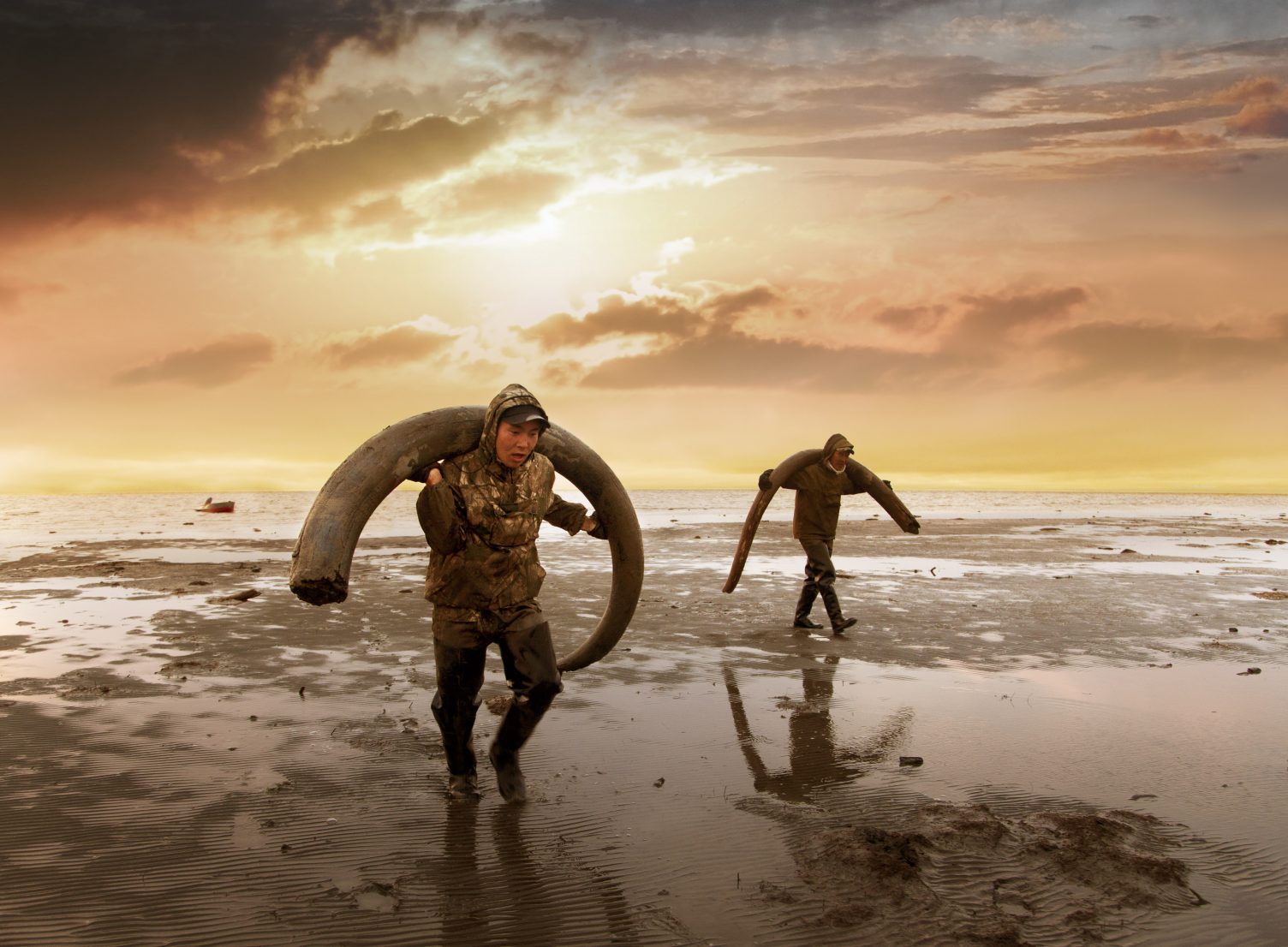
Dirs: Christian Frei, Maxim Arbugaev | Switzerland | 2018 | 113 mins
GENESIS 2 follows the yearly search for mammoth tusks in the frozen wastes of the New Siberian Islands, discovered in 1723. The task of extracting frozen genetic material from the permafrost is a tough but a worthy one intended to enable some pioneering scientists to reconstruct the long-extinct mammoth that once roamed the icy region.
Oscar-nominated documentarian Christian Frei (War Photographer) has quite literally taken on a mammoth task in exploring this hostile Arctic hinterland. Genesis 2 scratches at the edges of both horror and science, in an endeavour that occasionally feels like he has taken off more that he can chew.
As in Book of the Sea, also screening during Russian Film Week, Friel adds elements of myth to his icebound study. The film opens with narrated verses from a Yakutian epic tale, accompanied by Max Richter’s morose music, and the characters who embark on this intrepid research are all courageous – even foolhardy – enough to risk their lives for what may amount to very little: the resonance with Werner Herzog’s Encounters at the End of the World, The Wild Blue Yonder, Grizzly Man and even Aguirre Wrath of God, are clearly felt. At times Frei even sounds like the great master himself.
Many of these eco-warriors are dicing with death and several will actually meet their maker in the vain hope of returning home with a slither of genetic material that they can trade for upwards of $45,00. And while this may feed their families for some time, they must endure the downside: perishing cold and even death.
Back in the comparative comfort of a smug Boston scientific seminar we hear how “synthetic biology” is going to change everything by “taking control of evolution” by creating hybrid creatures out of horses, sheep and zebras. But that seems rather glib to the anxious tusk hunters struggling to dig up the ground in the bleak terrain of the Northern hemisphere. Peter Grigoriev (Frie terms him an intellectual because ‘he likes reading a lot”) and his brother Semyon Grigoriev, the Head of the Mammoth Museum, in Yakutsk, Siberia are the main characters in this rather sombre eco-doc, are seen wading through mud in the dripping interior of a cave where “cavemen lived for hundreds of years”. It emerges that anyone who tries to dissenter a mammoth will visited by a curse but they are also deemed “lucky” to come across three polar bears. When Semyon eventually comes across the ancient flesh of tusk specimen, he can’t help tasting it, but seems rather unimpressed. Back in the lab, the aim is to create a new animal, a chimera – just the like the woolly mammoth was back in the day. `
There is a sense of wonder and awe, but also a sense of foreboding in the sober search for animal remains. The spectacular visuals create an amazing sense of the remote emptiness of the locations and the quiet desperation of Siberians who travel here in the hope of improving their lives. The bright Boston buildings and the massive shiny headquarters of China’s National Gene bank make this ‘new life’ seem rather devoid of reality when compared to the gruelling coal face search. MT
SCREENING DURING RUSSIAN FILM WEEK | 25 NOVEMBER – 2 DECEMBER 2018